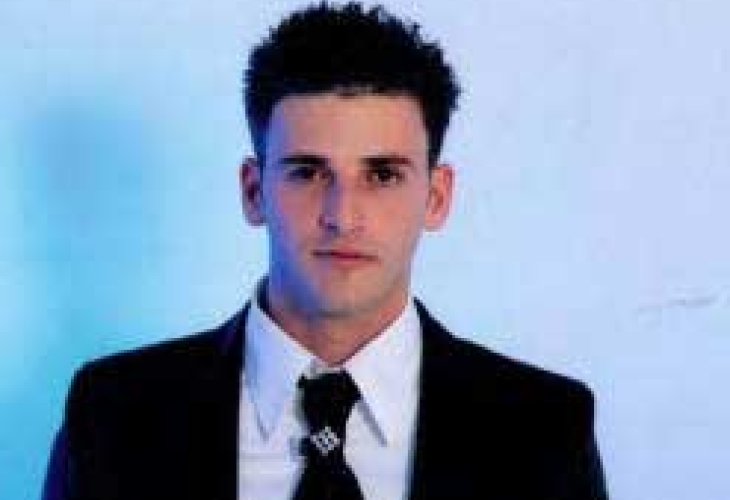Kabbalah and Mysticism
The Secret Power of Segulot: What Judaism Really Says About Spiritual Remedies and Hidden Blessings
The authentic meaning of segulot in Jewish tradition — how small acts can unlock divine channels of blessing, and how to tell true spiritual practices from modern-day superstition

We live in the age of instant everything — instant food, instant communication, instant gratification. The pace of life is fast and restless, and the search for shortcuts extends even into the realm of faith. Instead of patience, process, and prayer, many people seek segulot — small, symbolic actions believed to bring blessing in health, livelihood, fertility, or love.
As the demand for segulot grows, so do the number of self-proclaimed “spiritual experts” who invent new ones. Yet according to authentic Jewish teaching, some segulot indeed have real spiritual foundations. How can we tell which are genuine and which are empty superstition? And how can a seemingly small act bring about such great results?
The Hidden Connection Between All Things
“The world operates on multiple layers,” explains Rabbi Yitzchak Gabay. “There are levels we perceive directly such as action, speech, and thought.
On the level of action, I move a chair by physically picking it up.
On the level of speech, I can ask someone else to move it for me.
On the level of thought, I might influence energy or intention indirectly.”
Beyond these, says Rabbi Gabay, there are spiritual codes, which are hidden systems in creation where one thing can affect another across vast distances or dimensions. “It’s like pressing a point on the foot in reflexology and curing a headache,” he says. “At first it seems like magic, but when you understand the hidden connections of the arteries, nerves, and energies that link everything, it makes sense.”
Kabbalah describes reality as an interconnected web. Every part of the body reflects all 613 organs and tendons of the soul, as the Zohar teaches. “When a person gives charity, for example, it’s a segulah (spiritual remedy) for wealth. Logically it seems backward — I give away money to make more? But spiritually, there are channels that connect giving to abundance.”
Spiritual Meaning Behind Physical Actions
In Judaism, even simple physical acts can carry profound spiritual meaning. “After touching something impure or leaving the restroom,” says Rabbi Gabay, “we wash our hands from a vessel — not directly from the faucet. If it were only about hygiene, it wouldn’t matter, however, water poured from a vessel three times alternately taps into a specific spiritual frequency, so that it purifies the soul, not just the skin.”
Likewise, immersing in a mikveh (ritual bath) has a purifying power that an ordinary pool or bathtub does not. “The mikveh,” he explains, “connects to deep cosmic roots of renewal. Certain acts touch precise points in creation — they’re not symbolic, they’re real.”
Can a Segulah Override Divine Justice?
Judaism teaches that every person’s life follows the principle of reward and consequence. If someone was destined to be childless for three years, how could a simple segulah reverse such a decree?
“The answer,” says Rabbi Gabay, “is complex. Consider prayer. Sometimes blessing already exists for a person, but it’s blocked — like a faucet turned off by a thin piece of wood. Through prayer, repentance, or charity, we ‘open the valve.’ Some decrees aren’t erased but sweetened — their harshness transformed through spiritual effort.”
If someone’s blessing is blocked, it may be due to a spiritual prosecutor — an angelic force holding them back because of past actions. “When a person performs a genuine segulah from a reliable source,” he continues, “it can neutralize those forces from their root and reopen the channels of abundance.”

True Segulot vs. False Ones
Unfortunately, this concept has also invited countless charlatans who sell false promises. “People hear that the universe works through hidden codes,” Rabbi Gabay explains, “so they start inventing their own. That’s how false segulot that have no grounding in Torah or Kabbalah begin to spread.
Real segulot come only from authentic sources such as the Talmud, books of Chassidut, and the writings of true Kabbalists. Before following any segulah, one should consult a reputable rabbi who is God-fearing, realistic, and not someone who charges money for ‘spiritual help.’”
The Meaning of the Word Segulah
The word segulah itself carries deep symbolism. It has three meanings:
A Precious Gem:Segulah means something rare and valuable — like a jewel with hidden brilliance. The Jewish people are called “Am Segulah” — “a treasured nation” for this reason.
An Elliptical Shape (Sagulgal): In the Talmud, the term refers to an oval — a shape that combines both a circle and a square, representing completeness and balance between all extremes.
A Hidden Power: Just as a gemstone holds inner light, a segulah contains concealed spiritual energy that links the physical and the divine.
Beyond the Shortcut
The world’s hunger for instant solutions may drive people toward “spiritual shortcuts,” but the true Jewish approach to segulot is far from superstition. Real segulot are not magic tricks, but spiritual tools rooted in the divine structure of reality.
When used with understanding, sincerity, and humility, they remind us that everything in creation — every word, color, and act of kindness, is interconnected.
Sometimes, what seems like a small action in this world can awaken vast blessings in the worlds above.

